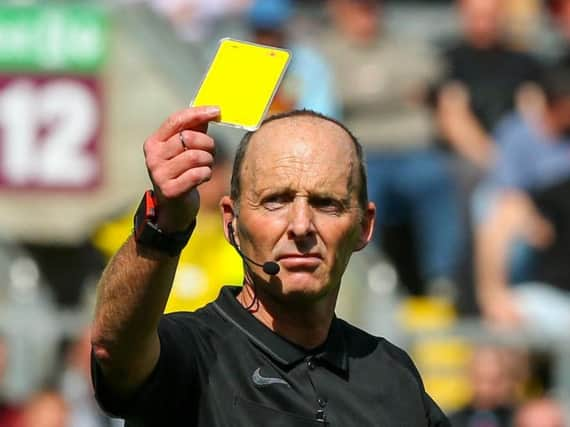Non-league sin bins: what you need to know


Clubs such as Longridge Town, Garstang and Charnock Richard will see players potentially temporarily dismissed this season in a rule shake-up by the Football Association after a successful trial period..
Here, we take a look at the rule changes, how they will be enforced and what it could mean for our teams.
Why are sin bins being brought in?
Advertisement
Hide AdAdvertisement
Hide AdThe Football Association are looking to try and cut down on poor discipline and promote respect.
In 2016-17 season, there were 73,500 cautions for dissent. In the leagues that trialled the sin bins last season, there was a 38% reduction in bookings for the same offence.
The philosophy is that an ‘instant punishment’ can have a significant and immediate positive influence on the behaviour of the offending player and, potentially, the player’s team.
Which leagues and clubs will be affected?
All senior leagues at step five and below will see the introduction of sin bins for the 2019-20 season.
Advertisement
Hide AdAdvertisement
Hide AdThat means clubs in the North West Counties League and West Lancashire League will be affected.
What are the rule changes?
Referees can temporarily dismiss players for 10-minute periods for dissent (C2) offences.
While foul and abusive language can still see players receive straight red cards, lesser crimes, such as kicking the ball away, could lead to a player being sent to his side’s technical area until allowed to return by the match official.
The referee will then allow the player to return to the game at the end of the 10-minute period, taking into account time lost for injuries, time-wasting and substitutions.
Advertisement
Hide AdAdvertisement
Hide AdThe sin bin period can straddle half-time or extra time if the period hasn’t been completed by the time the half-time whistle is blown.
The player must stay in the technical area during the sin bin period, though they are allowed to warm up before they return to the fray.
There is no fine for sin bin offences, unlike regular yellow and red cards.
How does it affect goalkeepers and substitutes?
Temporary dismissals apply to all players (including goalkeepers) but not for cautionable offences committed by a substitute or substituted player.
Advertisement
Hide AdAdvertisement
Hide AdIf a goalkeeper is sin binned then an outfield player must take his place, the shot stopper only allowed to return after the ball is out of play, unlike teammates in other positions.
A sin-binned player cannot be substituted until the end of the temporary dismissal period.
What about penalty shoot-outs?
In cup competitions, any player who is still temporarily dismissed at the end of a contest is allowed to take part in a penalty shootout.
How does the referee indicate a sin binning offence?
The referee signals a temporary dismissal by showing the yellow card and then clearly pointing with both arms to the sin bin area.
Advertisement
Hide AdAdvertisement
Hide AdCan players be booked AND be sent to the sin bin in the same game?
Yes. A player can be sin binned, then return to the fray and receive a yellow card. If that happens, they continue playing.
A player who has been booked and then receives a temporary dismissal can continue playing after the end of the sin bin period.
However, if a player is sin-binned twice in the same match, they will serve the temporary dismissal and then take no further part in the match. The player may be replaced by a substitute at the end of the second temporary dismissal period if the player’s team has not used its maximum number of substitutes.
Advertisement
Hide AdAdvertisement
Hide AdA player who receives a second temporary dismissal in the same match and has also received a caution for another yellow card offence takes no further part in the match and the player can’t be replaced/substituted.